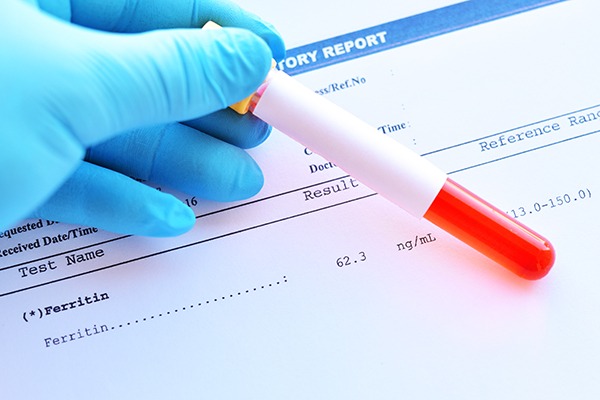 UPDATED: January 26, 2024
UPDATED: January 26, 2024
Iron is an essential mineral that assists in the transport of oxygen from the lungs to the rest of the body, allowing muscles to work. As such, iron is especially important for athletes with increased demands on their muscles during training and competition. Iron deficiency may adversely affect physical performance and/or overall health, and is common in athletes, particularly female athletes, endurance athletes, young athletes, and athletes who eat vegetarian or frequently donate blood.
While the body’s iron requirements are typically met through the food we consume, athletes diagnosed with iron deficiency may be prescribed iron pills or liquid, or in more severe cases, prescription iron injections (e.g., iron sucrose or ferric carboxymaltose) if they do not respond well to oral iron. Iron supplements are also used to address iron deficiency, but like all supplements, there is some level of risk for consumers.
Here’s what athletes need to know about the anti-doping status of various iron treatments.
Is iron a permitted substance?
Yes, iron is a permitted substance in sport.
Can athletes take oral iron pills, chews, and liquids?
Yes, athletes may use oral iron pills, chews, and liquids without the need for a Therapeutic Use Exemption (TUE). Iron pills, chews, and liquids taken by mouth are permitted, and there are numerous prescription products and over-the-counter medications.
However, if an athlete chooses to use a dietary supplement for iron (as opposed to a prescription or over-the-counter medication with a Drug Facts panel on the label), they assume all the risks inherent to the supplement industry. Make sure to read USADA’s advisory on third-party testing and keep in mind that the use of any dietary supplement is at your own risk.
What’s the anti-doping status of iron injections and/or infusions?
The anti-doping status of an iron injection or infusion depends on the volume being injected. An iron injection or infusion is permitted if 100 mL of fluid or less is delivered per 12-hour period.
However, injections and infusions of more than 100 mL in 12 hours are prohibited unless legitimately received in the course of a hospital treatment, regardless of the substance being injected. More information about the IV injection/infusion rule is available here.
What if my doctor prescribes an intravenous iron injection or infusion?
Athletes who are prescribed iron injections or infusions should work with their doctor to identify a treatment program that allows for an injection or infusion of 100 mL or less within a 12-hour period. If a larger volume is necessary, submit a TUE-Pre-Check Form to find out if a TUE is needed in advance of treatment. In some cases, athletes must apply for and be granted a TUE before treatment.
What information is required for a TUE application?
USADA cannot guarantee that TUEs will be approved, as each medical situation is different, but each TUE is evaluated consistently based on the International Standard for TUEs criteria.
More information on TUEs and IV infusions and injections can be found here.
What is considered a “hospital treatment” under the rules?
Athletes should always apply for a TUE if they are administered an intravenous treatment that exceeds 100 mL within a 12-hour period unless they are in a hospital. Please read USADA’s IV Infusion Explanatory Note to understand all the situations in which a TUE is required for an IV infusion.
What if I’m selected for doping control?
During doping control, athletes should declare any prescription/non-prescription medications, injections, blood transfusions, and/or dietary supplements they are taking on the Doping Control Form (DCF), along with details of any Therapeutic Use Exemptions (TUEs) they have obtained.
________________________________
More questions?
For questions about specific products, substances, and methods, contact USADA’s Drug Reference Line at drugreference@usada.org or call (719) 785-2000, option 2.
Read more Spirit of Sport blog posts



